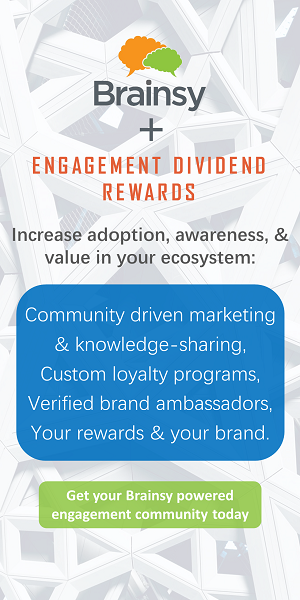Networking. It’s an integral component of having a successful career. Most professionals recognize this, but few proactively work on expanding and cultivating their professional networks. Luckily, networking is easier than ever before thanks to the new technologies of the digital age. Unfortunately, all of the new opportunities comes with a new set of rules to follow.
Different ways to expand your network
The traditional methods of expanding your network do still exist, e.g. seminars, conferences, panels, and networking sessions. These events still do matter in creating and maintaining a professional network! When attending these receptions, don’t stick to talking to people you already know. Sure, touching base with some of your existing contacts is great, but your goal at these events should be to grow your network. In this line of thought, expand your horizons and talk to new people. Don’t discriminate based on job or industry at networking events; you never know who will be a valuable contact in the future.
As soon as you walk into a networking event, exude friendliness and approachability. It’s not recommended to walk up to a group that seems like they’ve known each other for years. Instead, join a smaller conversation or approach someone who is alone. After the initial introductions, ask open-ended questions about their jobs or themselves. Everyone enjoys talking about themselves, especially when they’re talking with someone who is present and interested in the conversation as well. When the conversation has run its course, ask for their business cards. (Hopefully they will ask for yours in return.) With the newly acquired business card, follow through on contacting them. The best option is a personalized note or email, but at least send a polite request to connect on LinkedIn.
The internet provides new ways to expand your network outside of the traditional networking sessions. You can meet other professionals in your field through joining groups on LinkedIn, online networking forums or even by messaging a like-minded professional on Twitter.
The perk of these relationships is that you can build more of them since time or location isn’t limited. On the other hand, these relationships typically are not as strong as they would be in-person. Because of this, you have to make a little more effort to establish a strong connection. Talk to them relatively often, and make sure you have something meaningful to say when you do. Treat online contacts as valuable relationships. just like you would contacts who you see often.
Communication with your network
The key to networking is building relationships, and the key to relationships is communication. Today, communication has been vastly improved with our easy access to the internet. Twenty years ago, you’d have to pick up your phone and search through an address book for a name. Now you can tweet, email, comment, like, share or even rate posts on various outlets, as well as pick up your cell phone and find their contact information.
The key to successful networking is not just send occasional emails, but to really build relationships. After meeting someone (whether online or at a networking event), follow the 27-7-30 rule. Make contact within a day, a week, and a month so that they will remember you.
When connecting with someone on LinkedIn, make sure that you write a note explaining why you would like to connect. The generic “I want to connect with you,” isn’t the way to begin a fruitful business relationship. Once you’ve connected on LinkedIn and possibly other social media outlets, carefully curate your posts. There’s a firm line between spamming your connections and sharing pertinent and exciting information about yourself or your profession; make sure you don’t cross it!
How to use your network
Yes, regular contact is great, but the important part of having a valuable networking relationship is to be able to leverage your contacts. A relationship like this begins with giving. The ultimate goal is to receive, but first you have to give. Contacts that you just met will not be willing to help in a sticky situation, but a contact will be happy to return the favor if you have helped them in the past.
This type of giving doesn’t have to be elaborate; introductions or invitations to dinner or future events are great lost-cost ways to show that you’re a valuable contact. By giving them valuable benefits, professional contacts are likely to help you both when you ask and when you don’t.
Another way to give is sharing information. By becoming a resource for others, you can share valuable information and keep yourself visible. Write blog posts, share insights about your field on LinkedIn or Twitter, offer advice to contacts in your area of expertise, or set up an Expert Calling Network to show off your expertise and establish yourself as a resource. (Not sure what an Expert Calling Network is? Check out my previous article here: https://ecn.expertcallingnetwork.com/kb/article/build-your-brand-online.)
Remember that this process takes time. Each relationship goes through a process: getting to know each other, liking each other, and then finally trust is achieved. This process can be expedited by face-to-face meetings, but it’s not necessary to build a valuable networking relationship.
Networking should produce mutually beneficial relationships. Therefore, don’t keep giving to those who only take, and cultivate the relationships that are give and take. The exchange of value shouldn’t be transactional in nature; keep it organic and based more on building your relationship.
Overall, building a great professional network seems like a daunting task. However, networking is really about being genuine and authentic, building trust and relationships, and seeing how you can help others. A good network can lead to inspiration, knowledge, opening of new doors, mentors, and role models. With all the platforms available online, personal connections are easier to make and cultivate than ever before. Professionals have to take advantage of 21st century networking to grow their career, especially going into the future.
***
Steven Burda (http://www.sburda.com and www.Linkedin.com/in/burda) is one of the most connected people in the world with 160,000 direct first level connections on LinkedIn as of March 2016. He writes for the ECN Knowledge Board (blog) covering topics such as social media marketing, LinkedIn Growth Strategies, Expert Calling Network (ECN) User Tips, personal branding, and the use of social media for purposeful networking and building quality relationships.
Register for FREE to comment or continue reading this article. Already registered? Login here.
0

